 Two previous blog posts Victim, Rescuer, Persecutor: Which Role Are You Playing? and From Tension to Empowerment – Creating a Smart Tribe share tools to end workforce drama and tension through The Empowerment Dynamic David Emerald Womeldorff offered at the Dallas Growth Summit. The previous blogs are based on Christine Comaford, a 2015 Growth Summit presenter and her book, Smart Tribes.
Two previous blog posts Victim, Rescuer, Persecutor: Which Role Are You Playing? and From Tension to Empowerment – Creating a Smart Tribe share tools to end workforce drama and tension through The Empowerment Dynamic David Emerald Womeldorff offered at the Dallas Growth Summit. The previous blogs are based on Christine Comaford, a 2015 Growth Summit presenter and her book, Smart Tribes.
More impactful, is the insight this provides to discover a role you can play to be more productive and constructive ourselves and for our people.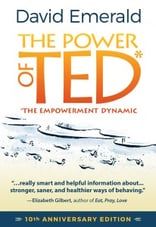
Womeldorff’s contrast on outcome orientation versus problem orientation is akin to Comaford’s Smart Tribe insights. This orientation requires much more than one visit and a simple training session. Our habits are difficult to break. Often how we approach challenges with people ingrained with our childhood behavior. We repeatedly reenact this behavior as we move into adolescence and our adult lives.
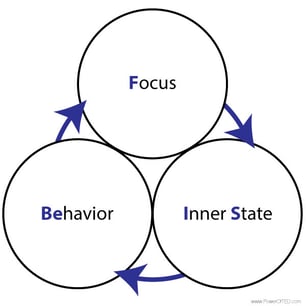
Womeldorff’s first slides share FISBE. It starts with our Focus, moves to our Inner State and then results in our Behavior.
- Where are you putting your focus?
- Are you focused on problems or on outcomes?
- How are you relating?
- How are you relating to others, your experience and yourself?
- Are you producing or perpetuating drama or empowering others and yourself to be more resourceful, resilient and innovative?
- What actions are you taking?
- Are you merely reacting to the problems of the moment or taking generative action (including solving problems) in service to outcomes?
Outcome Orientation.
The outcome orientation should be our aspired or predominant operating system. Ask yourself truly how often do you operate this way?
Envision Outcome is our “Focus.” This is ultimately what we want to achieve.
Passion Care is our Intention. It’s how we manifest our outcome.
Finally, Baby Steps is the initial diminutive efforts to produce the outcome we desire.
Problem Orientation
Problem orientation is not problem solving. It generally results in what we don’t want or don’t like. It’s deluded.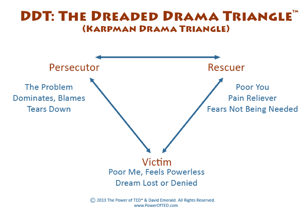
The Problem (first step) is more often than not anxiety driven.
In most cases this orientation produces a rollercoaster effect.
We tell ourselves we are reacting to the problem when really, we are responding to our anxiety.
Reacting here is nothing more than Flight, Fright, Freeze or worse yet Appease.
SHIFT FROM VICTIM TO CREATION – DRAMA TO EMPOWERMENT
Holocaust survivor Victor Frankl in Man’s Search for Meaning, shared the one thing the Nazi’s couldn’t take away. It’s our choice on how we respond to any condition or circumstance.
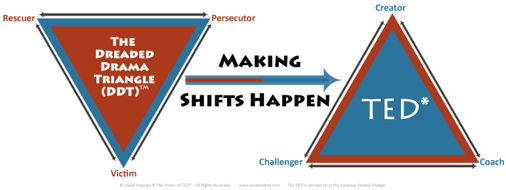 We choose how we respond.
We choose how we respond.
This insight allows us to shift our focus from being the victim to being a creator. All of us play in all 3 roles in the drama triangle at times. We aren’t confined to only being a rescuer, persecutor or victim. Although we predominately fall into one, we can move from one role to the next.
When we see others as Creators, we enable them to make choices, to be responsible and make decisions. We shift from react to create.
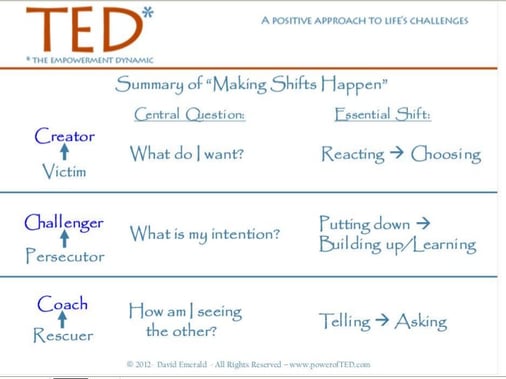 Just as we fall into each role in the Empowerment Dynamic, anyone of us can be the coach. In our role as coach, how do we see the Victim? Instead of choosing to be right, learn.
Just as we fall into each role in the Empowerment Dynamic, anyone of us can be the coach. In our role as coach, how do we see the Victim? Instead of choosing to be right, learn.
I’m obviously no expert at this. Take a long look at the roles in the picture on how to move from the Drama Triangle to the Empowerment Dynamic.
Move yourself from the roles on the left to the roles on the right.
|
Dreaded Drama Triangle |
The Empowerment Dynamic |
|
Victim |
Creator |
|
Thinks they are powerless and at the mercy of life circumstances. Is unwilling to take responsibility for what happens in their life. |
Focuses on vision and desired outcomes takes full responsibility for initiating action to achieve their desired outcome. |
|
Persecutor |
Challenger |
|
Thinks they must win at any cost. Controls others through blame, criticism, and oppression |
Sparks learning by challenging assumptions and the status quo. Focus on improvement and development by holding people accountable for action. |
|
Rescuer |
Coach |
|
Intervenes on behalf of the Victim to save them from perceived harm. Fosters dependency by relieving the Victim from taking responsibility |
Empowers people through inquiry to gain clarity. |
Which role are you predominately playing? What can you do to be consistently in the Empowerment Dynamic? What can you do to begin to respond differently?
As a coach my primary role should be in the lower right hand corner. Hopefully these insights help you identify where you’ve been making mistakes and focus on your improvement. I can seriously commit that in my life, particularly in my personal life, I need to improve.
NEXT BLOG
No one can argue that distraction is greater today than it’s ever been. There’s never been a time when it’s more critical to have concentrated focus. Cultivating this skill is what “Deep Work: Rules for Focused Success in a Distracted World," author Cal Newport offered as the next presenter at the Dallas Growth Summit. We’ll explore Newport’s three big ideas for focusing intensely, without distraction, next blog.






.jpeg?width=150&height=135&name=Hand%20with%20marker%20writing%20the%20question%20Whats%20Next_%20(1).jpeg)

